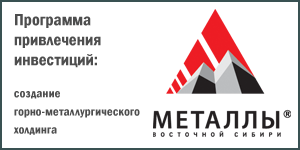By Anatoly Medetsky
The government on Monday announced a list of the
most attractive assets that it hopes to privatize next year, in a
bid to improve the management of the enterprises and reduce the
federal budget’s gaping deficit.
The list, which the Cabinet will review Tuesday,
consists of 14 companies — mostly ports, airports and shipping
businesses — that are currently classified as strategic, barring
complete government withdrawal from their capital.
In addition to stakes in the previously
announced insurance industry leader Rosgosstrakh, the country’s
largest tanker shipper Sovcomflot and the largest seaport
Novorossiisk, the government will put on the block stakes in the
smaller Tuapse Seaport and airports near major cities Novosibirsk
and Yekaterinburg and sea resort Anapa, a Cabinet source said at a
news briefing.
The government intends to sell a 25 percent
minus one share in the fully state-owned shipper Sovcomflot, the
source said, correcting previous reports that the stake would
measure 20 percent.
The privatization plan also calls for the sale
of stakes in the Far Eastern port of Vanino, Murmansk Sea Shipping,
Northwestern Sea Shipping and Sakhalin Sea Shipping companies as
well as the Volga River Shipping and Yenisei River Shipping
companies, the source said. The plan includes selling a stake in SG
Trans, which ships liquefied petroleum gas by rail, for about 8
billion rubles ($278 million) in the first quarter of next year, he
said without specifying the size of the stake.
The government earlier said the Murmansk Seaport
would go on sale next year, too.
For the sales to go ahead, President Dmitry
Medvedev will have to strike these companies, except Rosgosstrakh,
from the government’s list of strategic companies, the source said.
Medvedev removed Rosgosstrakh from the list earlier this year.
Medvedev, who called for more privatizations in
his state-of-the-nation address earlier this month, is likely to
approve of the measure.
The government anticipates that it will collect
77 billion rubles in these and other sales, the source said. The
figure compares with a budget deficit of 3 trillion rubles.
The other assets for sale are 435 wholly
government-owned companies, which the source didn’t specify. They
are so small that their sales account for 22 billion rubles out of
the total figure, he said.
The privatizations are expected to improve the
management of the companies by reducing the swollen size of
properties that are under government oversight.
“It’s obvious to everyone that they are
excessive,” the source said, speaking on condition of anonymity,
which is Cabinet policy for presession briefings. “It’s impossible
to manage all this huge mass effectively.”
While most potential investors will be
more interested in such industry leaders as the Novorossiisk
Seaport and Sovcomflot, the smaller companies could draw bids from
their current private co-owners, said Nadezhda Timokhova, a
transportation analyst at investment company Metropol.
Billionaire Oleg Deripaska’s investment vehicle
Basic Element owns around 13 percent in the Vanino Port that
handles a lot of cargo from aluminum giant RusAl, where Deripaska
has a holding.
Basic Element spokesman Sergei Babichenko said
he had no comment when asked whether the company would be seeking
the government’s 55 percent interest in the port.
Norilsk Nickel, which is a major co-owner and
client of the Yenisei River Shipping Company, didn’t respond to a
request for comment Monday afternoon.







